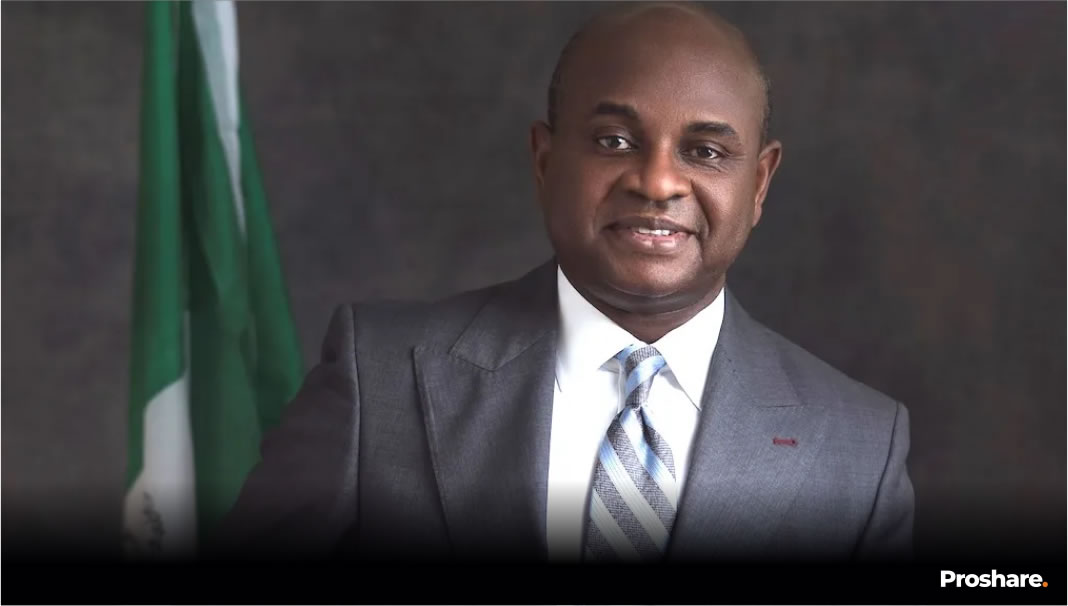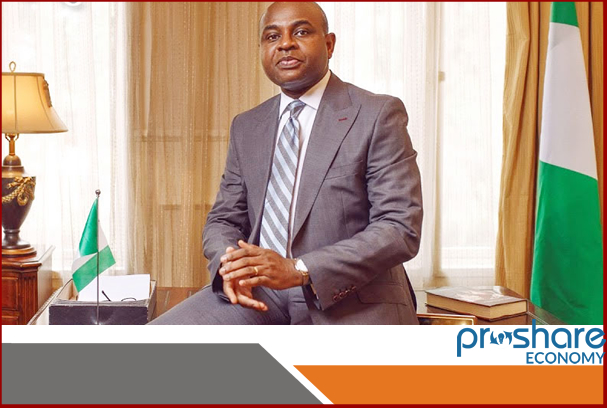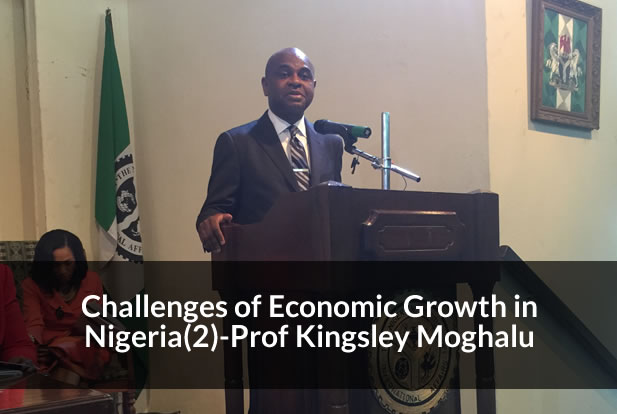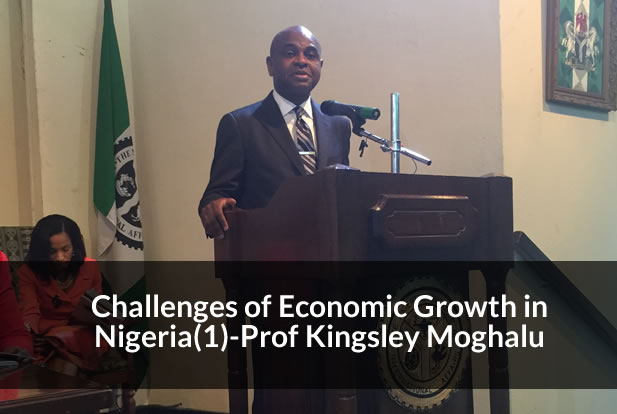We arrived very late as a country to the sovereign wealth party, when oil was already in decline.
Engaged in my gastronomical encounter with my plate of salmon, one of Chile’s largest exports, the pleasure of a fine meal was accompanied by a pensive mood. Lest I forget, Chile has spent the past three years developing a brand new Constitution through an inclusive consultative process with its population. In doing so, the country seeks to honestly confront and overcome its many challenges, and move to its next level of national ambition.
As I ate smoked salmon made in Chile last night as part of my dinner, my mind went to what Nigeria’s economy could have been, and still can become: a value-added, export led economy that breaks the “resource curse”. Chile, previously copper-dependent, earned $90 billion from such exports last year. Chile is one of the very few countries of the world to have successfully broken the resource curse and diversified its economy away from dependence on natural resources. Malaysia is another. This is no easy feat.
The resource curse, which afflicts Nigeria, operates in this way: natural resources, such as in the days of “oil boom” in Nigeria in the 1970s, bring in a rush of new financial revenues. All attention moves to that resource and the “easy money” from it because it’s “in the ground” and the only work required is to mine it. These resources become “the gate”, as described by the historian Frederick Cooper in his book Africa Since 1940, and all politics and statecraft gradually become anchored on who controls the gate and distributes the resources generated. These are “resource rents”. The powerful elite becomes consumed with the hot pursuit of such rents (rent-seeking).
Meanwhile, other aspects of economic productivity go into decline. There is little thinking and planning for the “rainy day”. But the prices of these natural resources are affected by many external factors. This results in price “shocks” when prices slump. Internal factors, such as production levels, also affect revenues.
In the meantime, again, the country’s levels of external reserves become dependent on revenues from the sales of these resources in their crude forms. These reserves anchor the value of the country’s legal tender. Citizens begin to mistakenly equate the strength of their local currency to the country’s economic health, but miss the real point: that the country is exporting and earning most of its revenues from raw materials and natural resources, instead of finished, value-added products, and is therefore uncompetitive in international trade and the global economy.
All politics (“democracy“) becomes about who will control and create rents from these resources. Ethnic groups and the adherents of religions fight “do or die“ in this context. No one cares about the poor men and women who are Federal-Character distributed across these identity groups. Mass poverty and instability are often the end results of this scenario. Some will call it poverty in the midst of plenty. The secret of the wealth of nations is not natural resources (ask Japan, South Korea, Switzerland and many others who have none). The secret of national wealth is knowledge – mainly scientific knowledge, technology and knowledge-based innovation. With this knowledge, the rich countries use the natural resources we are “blessed” with and manufacture complex products (like refined petrol), which they sell back to us at very high prices.
Because sophisticated manufactured goods are far more costly than raw materials or crude natural resources, and because the prices of the raw commodities we rely on for money are unstable and “cyclical” and so we often suffer commodity price shocks, our resource-rich countries remain poor and fiscally unstable, while the advanced countries get richer.
Now, back to Chile. This Latin American country of 20 million people, a GDP of $371 billion (Nigeria, with 216 million people has a GDP of $440 billion, so compare the Productivity Output, PO) and a GDP per capita of $14,000 (Nigeria’s is $2,000 and with an average of $1,600 since 1960) has done well, overall. Chile was able to beat the resource curse due to three main reasons…
Now, since we are “blessed” in Nigeria with crude oil, we must get the “benefit” of that “blessing” with artificially low prices of the refined petrol we import, right? But the poor do not own SUVs. Enter petrol subsidy which, of course, graduates to become the mother of all frauds and creates a new class of rent-seeking billionaires. As reserves dip and the value of the naira follows suit, and because we are mainly importers, we erroneously try to keep the naira-dollar exchange rate artificially low with fixed exchange rates, so that we can import profitably. Of course, the original owners of dollars don’t want their dollars being underpriced by underperforming economies trying to pull a fast one on their mainly illiterate citizens who like “one-naira-to-one-dollar” economics which, you see, is “patriotism” in some dictionaries. So, the owners of dollars take their money to invest in other countries where they can make a profit, and the investments can create jobs too.
Meanwhile, our rent-seekers, of course, “know” some powerful bankers and so can access forex at the rate fixed officially for “patriotic” reasons. But, of course, these dollar-preneurs will go and sell it in the parallel market for much higher prices and profits. The scarcer forex becomes, the more profitable this clandestine trade becomes for the personal economies of the rent-seekers, and the more the productive economy suffers. Moreover, inflation rises because the prices of imported goods are passed on to consumers. All of this is a long simplification of the two-word phrase “resource curse”.
Now, back to Chile. This Latin American country of 20 million people, a GDP of $371 billion (Nigeria, with 216 million people has a GDP of $440 billion, so compare the Productivity Output, PO) and a GDP per capita of $14,000 (Nigeria’s is $2,000 and with an average of $1,600 since 1960) has done well, overall. Chile was able to beat the resource curse due to three main reasons:
First, after years of socialist state controls, rising to its height under the reign of the socialist-communist Popular Party of President Salvador Allende, General Augusto Pinochet, who took power in a military coup in 1973, led the country away from socialism towards a market-driven economy, with sensible policies and economic freedom. The return of democracy in 1990 only deepened these economic reforms and grounded them in the people’s popular validation. So there was, first of all, a conscious, rigorous engagement with a philosophical shift in economic policy.
Second, Chile, which supplies a full one-third of the world’s copper, established a Fiscal Rule in the mid-1980s. Under this rule, whenever the global price of copper brought in strong revenues, the upward difference between a set budgetary benchmark and the actual price was transferred to a Stabilisation Fund. Conversely, whenever the global price of copper went down, the authorities moved funds from the Stabilisation Fund to the country’s budget. The country thus enjoyed fiscal stability at all times.
…Chile began a conscious shift towards a complex manufacturing-based export economy, starting with the manufacture of value-added agricultural, forestry and fisheries products, such as fish filets (remember my salmon?), wines, sulfate chemical, wood pulp, and then copper-based manufacturing, such as refined copper. Today, Chile is one of the strongest economies in Latin America.
This was what President Olusegun Obasanjo had in mind when his government established the Excess Crude Oil account in the early 2000s. Unfortunately, the arrangement was not governed by a strong legal or constitutional framework. This meant that succeeding administrations simply saw the ECA as a fund to be raided by Nigeria’s governing politicians whenever they were strapped for cash. “Why save for the rainy day when the rain is already beating us?”, they argued. The state governors ultimately challenged the ECA in a suit they filed at the Supreme Court in 2008, arguing that the money should be shared between the federal and state governments on the basis of certain provisions of the 1999 Constitution. The case was eventually settled out of court at the urging of President Umaru Yar’Adua.
President Obasanjo left an ECA balance of $20 billion when he left office in 2007. By the time Goodluck Jonathan came into office in mid-2010, after the death of Yar’Adua, the ECA balance had dropped to $6.5 billion. In May 2015 when the present administration of President Buhari was sworn in after winning the 2015 elections, there was $2.07 billion in the ECA pot. Today, all that is left in the ECA is $376,655 – the average cost of buying a two bedroom flat in most cities in the United States.
In 2011, Nigeria established a formal sovereign wealth fund through an Act of the National Assembly, which really became active in 2012/2013. During the planning meetings between the Central Bank of Nigeria and the Federal Ministry of Finance, in which I represented the CBN as a Deputy Governor, I coined and suggested the formal name of the fund to be the “Nigeria Sovereign Investment Authority”, and this was agreed. The NSIA today has $2.5 billion under management. We arrived very late as a country to the sovereign wealth party, when oil was already in decline. Norway’s sovereign wealth fund has more than $1 trillion in assets under management, the Abu Dhabi Investment Authority has $800 billion, Singapore’s Temasek has $50 billion, and so on.
Third, Chile began a conscious shift towards a complex manufacturing-based export economy, starting with the manufacture of value-added agricultural, forestry and fisheries products, such as fish filets (remember my salmon?), wines, sulfate chemical, wood pulp, and then copper-based manufacturing, such as refined copper. Today, Chile is one of the strongest economies in Latin America.
Engaged in my gastronomical encounter with my plate of salmon, one of Chile’s largest exports, the pleasure of a fine meal was accompanied by a pensive mood. Lest I forget, Chile has spent the past three years developing a brand new Constitution through an inclusive consultative process with its population. In doing so, the country seeks to honestly confront and overcome its many challenges, and move to its next level of national ambition.
About the Author
Kingsley Moghalu, a former deputy governor of the Central Bank of Nigeria, is the president of the Institute for Governance and Economic Transformation (IGET) and a Senior Fellow at the Council on Emerging Market Enterprises of The Fletcher School of Law and Diplomacy at Tufts University in Massachusetts, USA.
 Lagos, NG • GMT +1
Lagos, NG • GMT +1











 268 views
268 views













 Sponsored Ad
Sponsored Ad
 Advertise with Us
Advertise with Us









